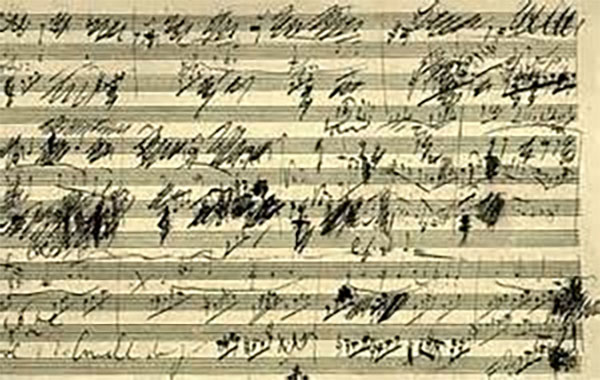Do Classical performers play exactly what is written? There’s a lot to this question. Of course, naturally, Classical pianists strive for accuracy. But what is accurate? There is a real challenge with composers who lived hundreds of years ago. If you’ve ever had the opportunity to look at some of the great composers’ scores, Beethoven comes to mind, there are scrawls on the page and sections scribbled out. Trying to decipher what they meant is no easy task.

It takes a lot of scholarly work. That’s why the editions you look at is critical and there are urtext editions which strive to present exactly what the composers wrote. How do they know what the composers wrote? Sometimes there are autographed scores and early editions and there are often discrepancies. Decisions have to be made as to what the composers’ intentions really were. Particularly with composers with sloppy calligraphy, it can be a real task! Ultimately, the performer must have conviction about the notes they play regardless of what is supposedly authoritative. If something seems wrong, you shouldn’t play it even if it is supposed to be authoritative. Maybe somewhere somebody got it wrong! You must have conviction as to what you’re playing.
There’s an entire other side to this question that is perhaps even more significant which is this: the musical score only has notes, rhythm, phrasing and expression. There is a whole lot more to the music than that! Consider this analogy of a play or motion picture. The words are all written out, yet the actor or actress must take those written words and create a character out of it. The words themselves really don’t come to life until the performer creates that character.
Exactly the same thing is true with a musical performance. The notes are just the skeleton of the work and it’s your job as a performer to flesh out the living, breathing work of music. In order to do that, many decisions have to be made that are not in the score. You might wonder what else there is besides the notes, rhythm, phrasing and expression. There are the ups and downs of the expression as well as rubato (the slight speeding up and slowing down in Romantic period music) which gives flavor and emotion to the music.
All of these things and more are left up to the performer. So it’s more than just a matter of accuracy, it’s all the things a performer brings to a performance to turn it into a piece of music. There are only basic directions in the score. So that’s the job of the performer. It’s not just about being accurate and if you want to prove that to yourself, listen to a computer playing a score of Mozart, Beethoven, Chopin or anyone else. You can program in everything and still it’s no music is it?
Thanks for joining me, Robert Estrin here at LivingPianos.com info@livingpianos.com








